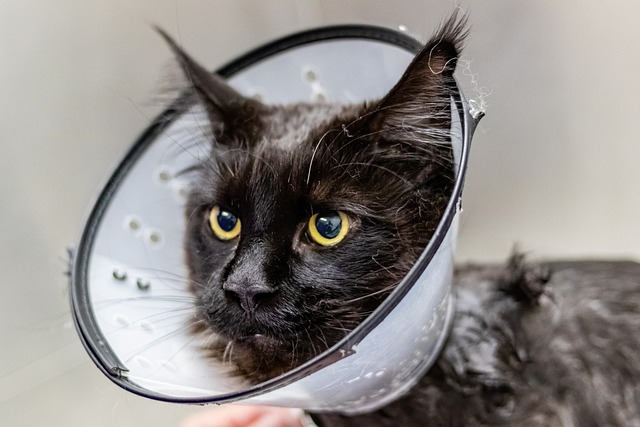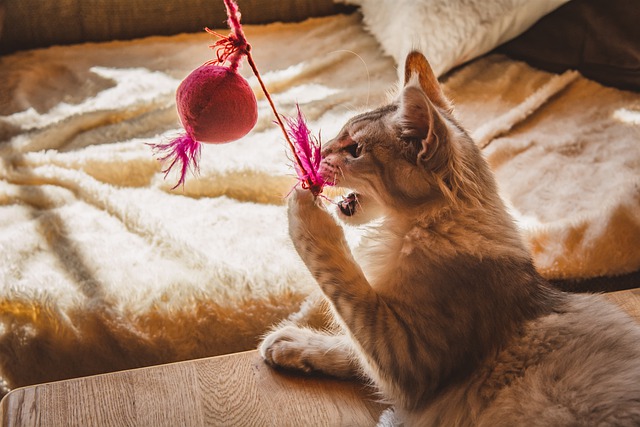How to care for a sick cat at home

If you have a sick cat that doesn’t require ongoing veterinary treatment, it’s possible to treat it at home and save money. You may need special syringes and droppers for eye or ear drops, but you can get them from your veterinarian, pet store, pharmacy, or drugstore.
You should treat your sick cat the same way you would a sick child. You’ll want to keep it in a warm place, away from drafts. You’ll want a quiet place that’s easy to clean and disinfect, but not too far away because you’ll want to keep an eye on him. If you have more than one cat at home and the disease is contagious, consider using old, easy-to-wash clothes and make sure the cats don’t mix.
If your home is primarily carpeted, consider laying down heavy-duty plastic that can be disinfected or replaced. To disinfect, use a product recommended by your veterinarian. Never use products containing coal tar, wood tar, phenol, cresol, or chloroxylenol, as they can be fatal to cats.
Used bandages should be disposed of quickly and safely. If your cat suffers from vomiting and/or diarrhea, clean up the mess immediately and disinfect the area. All applicators, such as syringes, should be washed and disinfected before the next use.
If it is necessary to give your cat medication, your veterinarian will certainly give you instructions and advice on how best to do so. Cats are notoriously difficult to get a pill to swallow, so consider grinding them down and adding them to the food. The same goes for capsules: empty the contents into the food and mix well. Always ask your veterinarian’s advice, as some medications should be given whole.
If the medication is in liquid form, you can draw the correct dose into a plastic syringe, hold the cat’s head firmly and place the syringe gently between the lips on the side of the mouth, not in front. Do not force the syringe into the cat’s mouth, as this will only frighten your already upset cat. Once the syringe is in place, push the plunger gently and slowly until the full dose is given. You should do this gradually to give your cat time to swallow the medication. By doing this slowly, you reduce the risk of the medication accidentally entering the lungs, which could cause pneumonia.
For pills or capsules that are to be administered whole, you will need to hold the cat’s head firmly with your fingers encircling the head on either side of the jaw. Gently pull the head back until the jaw opens. Speak softly to your cat during this process, as it may object strongly. Then drop the pill or capsule onto the back of the cat’s tongue. Hold the cat’s mouth closed and gently massage its throat until you see your cat swallow. This will be much easier if you have someone to help you during this process.
If your cat doesn’t like being given a pill in this way, you can use a “pillbox. This device looks like an elongated syringe. The pill is placed in the “popper” and the plunger pushes the pill toward the back of the cat’s mouth. Point the popper at the roof of the mouth rather than the tongue, then hold the mouth closed and massage the throat until you see the cat swallow.
If you need to give your cat eye or ear drops, they should come with a dropper or tip. If not, you can easily buy them at a pharmacy or drugstore. Always use the recommended dosage and check the instructions on when to apply them. It is best to have someone to help you if you need to put drops in, as you will need them to hold the eye open or the ear flap (pinna). For ear drops, massage the ear afterward to circulate the drops. Since ear drops are usually oily, if you put more than two or three drops in, your poor cat may get a greasy head.
Giving your cat extra attention and love when she’s sick will help speed up the healing process. It’s the same as with children and partners. They always respond to a little TLC. Spend time talking to your cat, telling him what you are doing. Your cat won’t recognize the words, but she will certainly understand your tone of voice. You may need to attend to feeding, watering, grooming, and even cleaning your cat while she is sick. This will take time and probably won’t be very pleasant, but the bond you already have with your cat will be strengthened immensely by your care.
No one likes to be sick, including your cat. Treat him as you would your child and he will repay you with years of pleasure. Of course, if you have any concerns about your sick cat, consult your veterinarian immediately.





